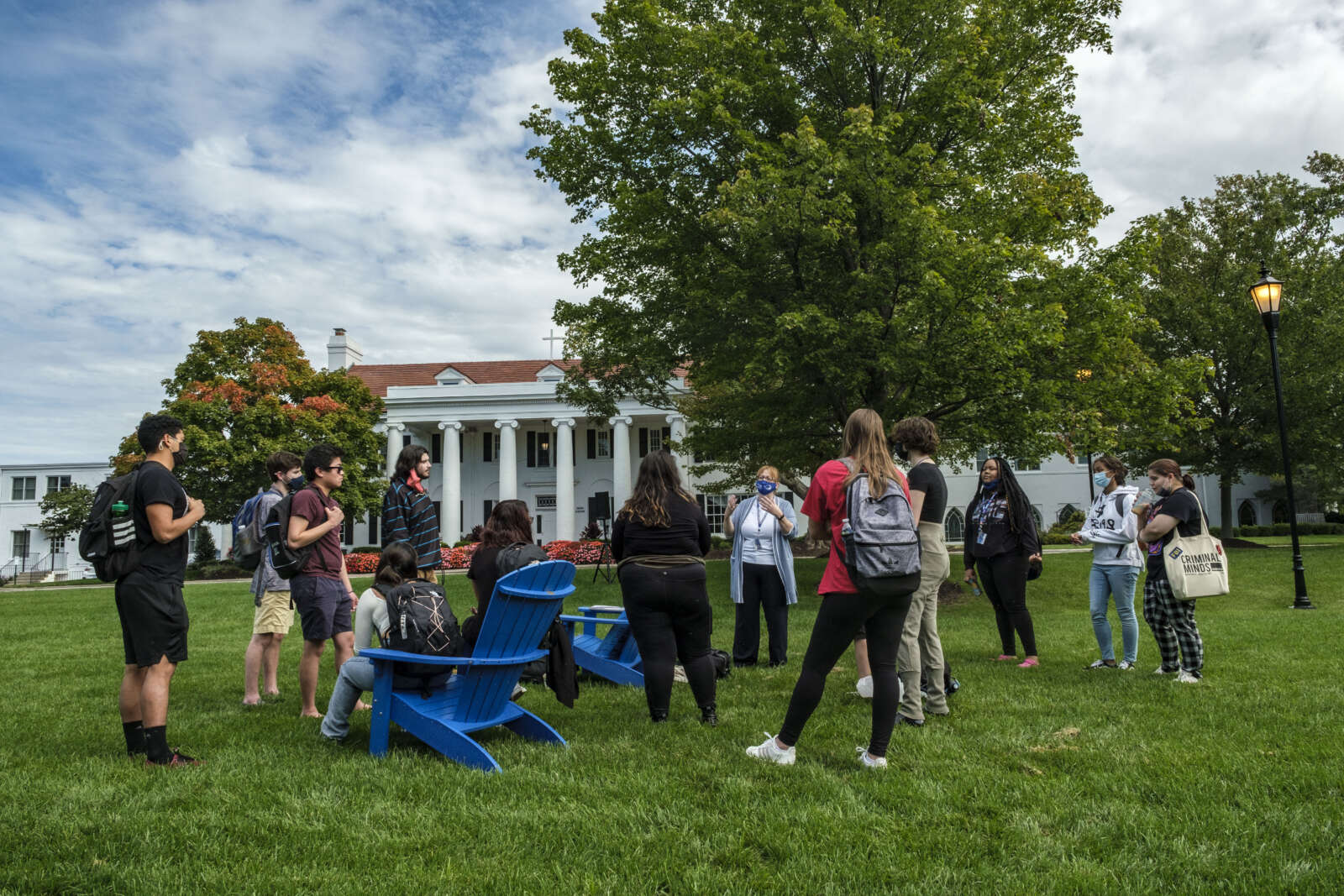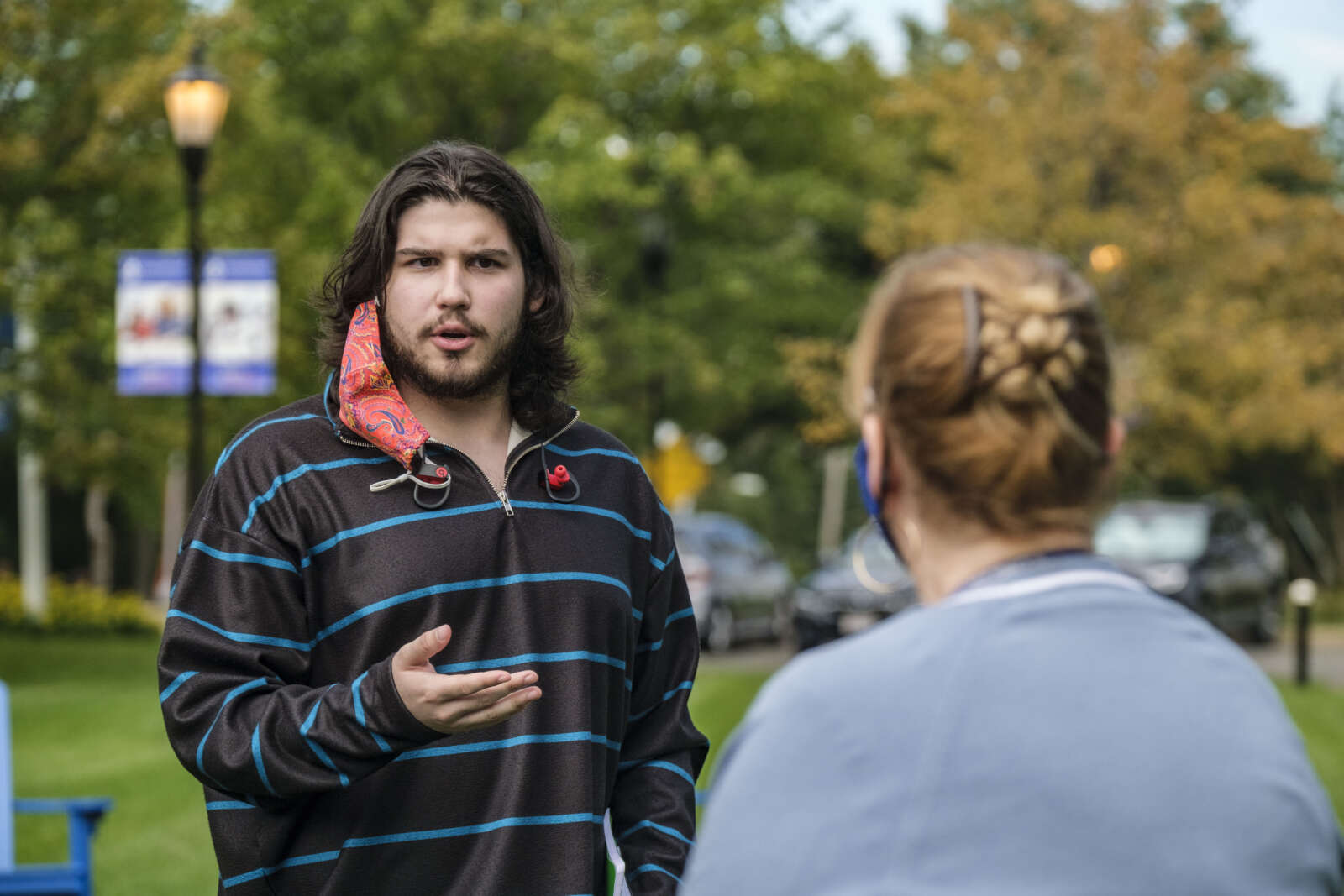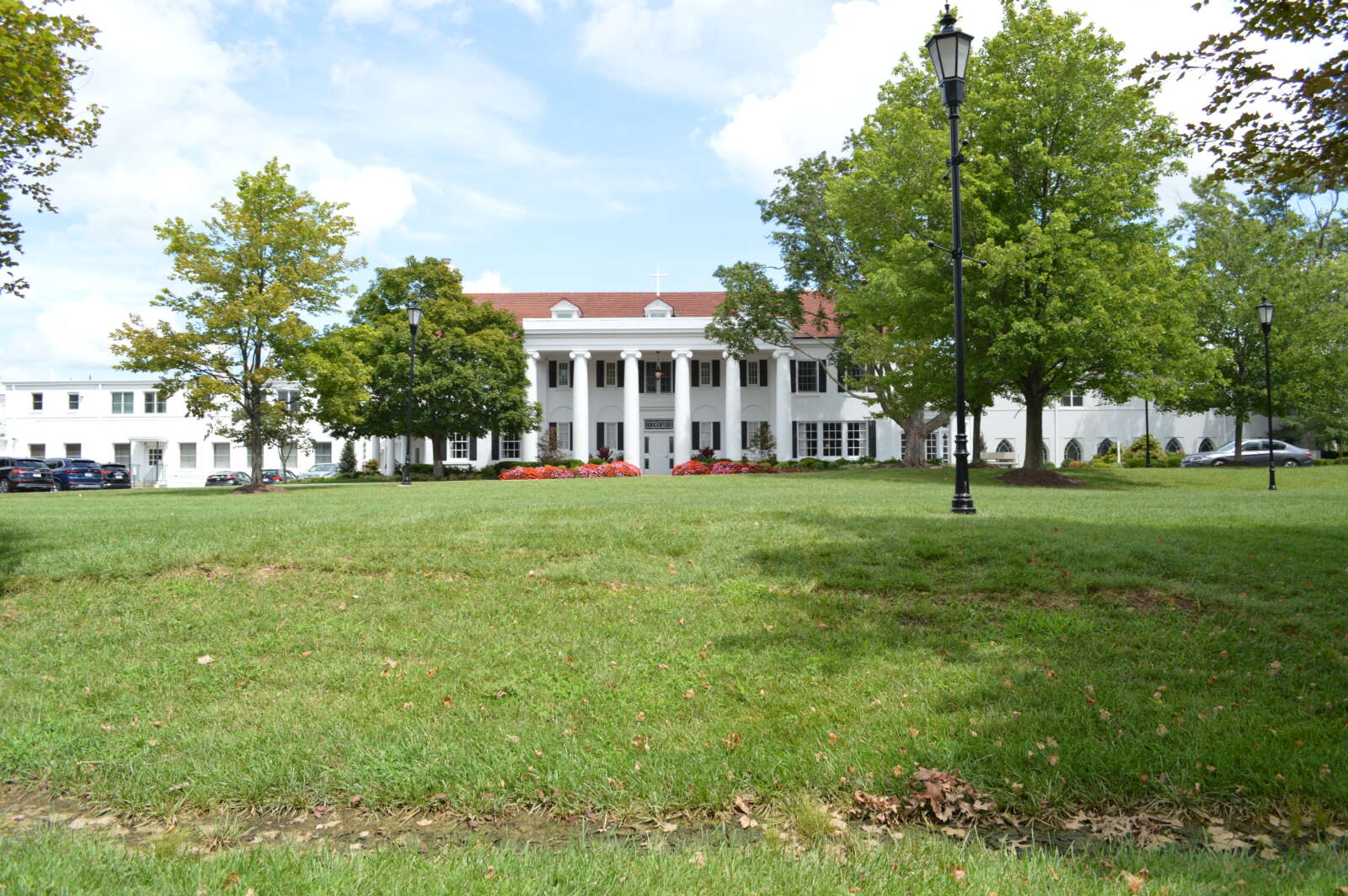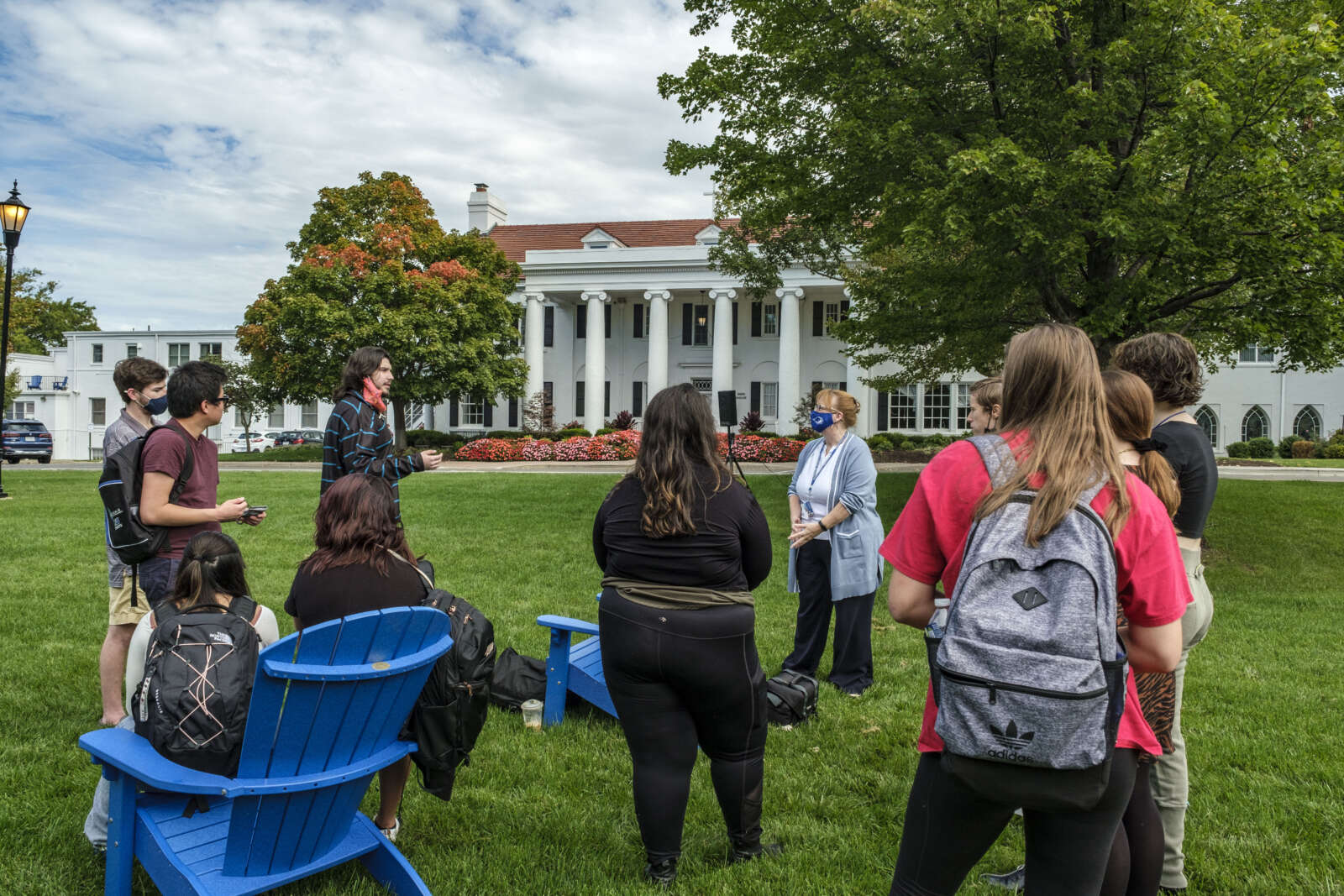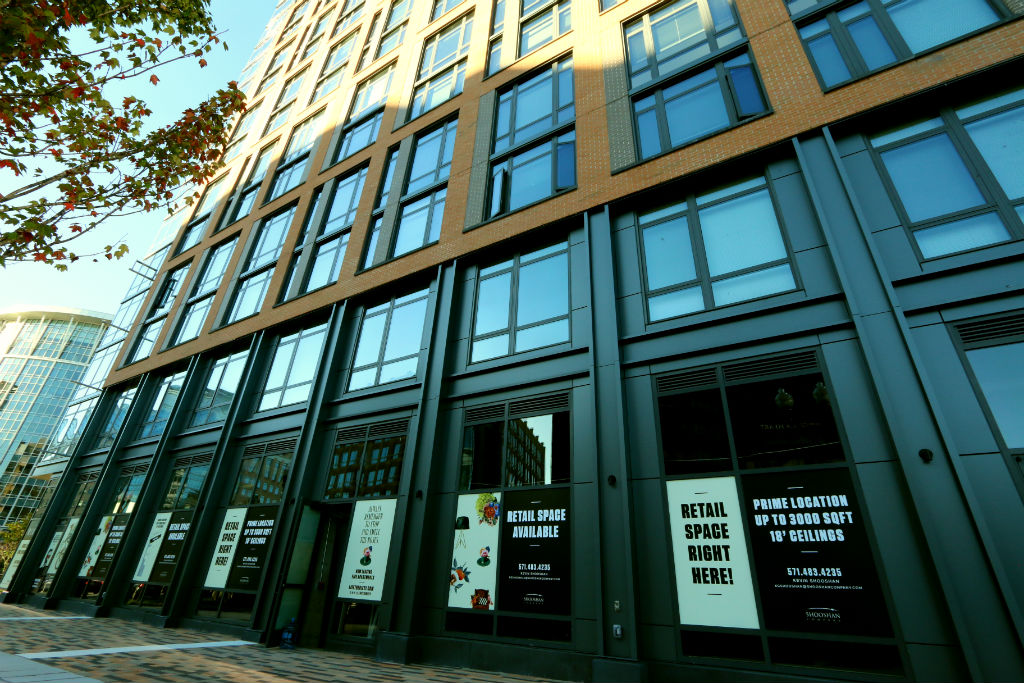(Updated, 12:30 p.m.) Some Marymount University students say they can’t afford a new housing policy that will require them to live on campus all four years.
Last week, a group of 15 students demonstrated outside of the Catholic university on N. Glebe Road in protest over a policy that will take effect next fall, requiring most students to live on campus during their entire stint at the school.
“Beginning in the Fall of 2022, all current and new undergraduate students who do not live with family members in the local [D.C] area will be required to live in University housing,” a university spokesperson told ARLnow.
A Change.org petition in response to the new policy calls for it to be rescinded, alleging that it’s a “blatant money-grab.” Plus, notes the petition, some off-campus leases have already been signed for next year, leaving students “to choose between breaking their lease or breaking university policy.”
The petition has more than 650 signatures.
The university tells ARLnow that this policy came from “input” they’ve received from students who say living on campus helps them have a “more engaged and fulfilling Marymount experience.” It also eliminates “problems with landlords and local housing laws, a growing trend that has been brought to our administration’s attention in recent years,” according to the spokesperson.
Those students who disagree with the policy say this makes attending Marymount University unaffordable for them when they could find lower cost housing options off-campus.
The lowest priced on-campus housing option is Rowley Hall, a dormitory on campus offering double rooms (as in, shared with another student). It costs $4,743 a semester, according to 2021-2022 housing rates, which works out to be more than $1,100 per month, per student. However, that option is only open to freshman and sophomores.
“We feel like we’re being priced out,” Giancarlo Ganzaba, a second-year Marymount student, tells ARLnow. “Not all of us can afford to keep [paying that]. We have to take out loans to be able to pay for on-campus living. We just can’t afford it.”
Ganzaba lives in the Rixey at 1008 N. Glebe Road, on Marymount’s satellite campus in Ballston, which was acquired by the school in 2019 and converted into university housing.
It was just announced last month that some of the student housing in the Rixey is going to be converted into hotel rooms. An attorney for the university noted that “student housing availability on site has consistently exceeded demand for student housing at Marymount,” according to the Washington Business Journal.
Ganzaba current pays $6,500 a semester to live in a two-bedroom, two-bath unit with three roommates at the Rixey. That’s about $1,600 a month.
“While that may be competitive with average rent levels, it is still incredibly expensive housing,” he says. “I could afford to live somewhere else off campus a few miles away and be a commuter. But they are taking that option away from me.”
Marymount, however, says that student who need it will have access to financial aid for housing.
“The University has adjusted financial aid policies to make on-campus living affordable for students and competitive with average rent levels in the area,” said spokesman Nick Munson.
Ganzaba says the aid isn’t enough. A number of students he knows, including himself, have or are currently looking for a part-time job in addition to being a full-time student to pay for their housing.
Marymount admits that rent at the Rixey may be higher than other apartment complexes in Arlington, but insists that financial aid will help with these costs.
“Because a Marymount resident student’s overall Cost of Attendance is higher than a commuter or off-campus student’s Cost of Attendance, their ability to qualify and ultimately receive financial aid that will defer these costs will [help] keep their living expenses affordable compared to what they would pay in rent elsewhere in the area,” writes Munson. “While the Rixey’s ‘sticker price’ may be higher than or as high as other apartment buildings in Arlington, financial aid will provide a discount that makes living in the Rixey a bargain for our students compared to what they would ultimately pay as residents in other apartment complexes in the area.”
The university also notes that there’s a appeals process to consider possible individual exemptions, like already in-effect leases, family situations, and financial hardships.
Ganzaba is in his second-year at Marymount as a political science major. His mother attended the school and he says there are plenty of things that he likes about the university.
“The people, whether it’s the friends that I’ve made or the professors here, who are just stellar people, they’re really great people,” he says.
While Ganzaba is holding out hope that Marymount will rescind the new housing policy, he knows that may not happen.
“We are fighting an uphill battle here. We may represent the largest group on campus, but we also comprise the smallest voice when it comes to decisions at the top level,” he says.
As a low-income student, Ganzaba is fearful that the requirement to live on-campus all four years will change Marymount’s DNA.
“Our university president says she wants it to be Arlington’s university,” he says. “We want to make sure that this university doesn’t just cater to those who can afford it, but to all those who want an education.”


